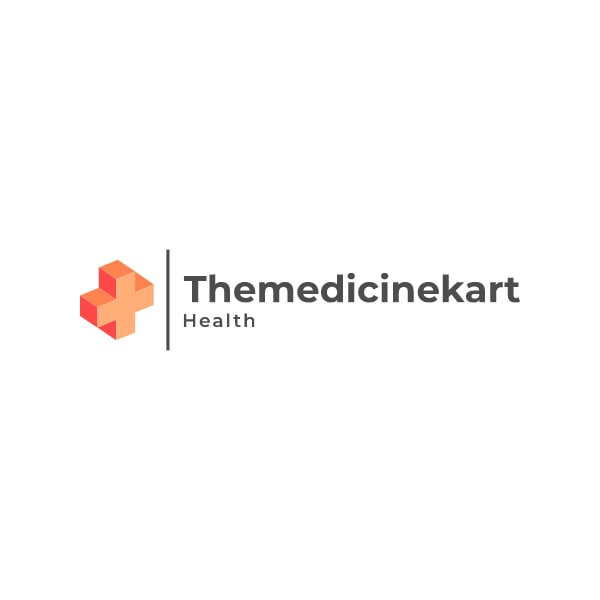The Rise of Digital Platforms for Medication Access
- Medicine kart
- Jun 2, 2025
- 4 min read
In recent years, digital platforms have transformed how we access medication. Gone are the days of long waits at pharmacies and cumbersome processes for refills. Now, with a few clicks, patients can obtain prescriptions, schedule doctor visits, and even receive medications delivered right to their homes. This digital shift has brought not only convenience but also accessibility to millions who need it.
Understanding Digital Platforms
Digital platforms are online systems that enable users to connect with services and products using a variety of technologies. In healthcare, these platforms help manage medication access, streamline communication between patients and healthcare providers, and promote prescription adherence. A growing number of individuals now depend on mobile apps and websites to manage their health, resulting in a significant leap forward in the delivery of healthcare services.

The Increasing Importance of Accessibility
Accessibility has become a crucial element in healthcare. Many individuals face barriers such as distance, mobility challenges, or lack of transportation. The prevalence of digital platforms has addressed these concerns by allowing users to engage with healthcare professionals remotely. For example, Telehealth services allow patients to consult with doctors without having to travel, which is extremely beneficial for those living in rural areas or who cannot easily visit a medical facility.
Statistics show that nearly 75% of American adults have used some form of telehealth service, according to a recent survey by the American Medical Association. This shift highlights how digital platforms have broken down traditional barriers to medication access, enabling a broader range of users to get the care they need.

Types of Digital Platforms Available
These platforms come in various forms, each serving unique needs in the medication access landscape. Here are some key types:
Online Pharmacies
Online pharmacies, like themedicinekart, allow users to order prescriptions and over-the-counter medications conveniently. Many of these platforms offer features such as automatic prescription refills and reminders for medication adherence, making it easier for patients to manage their treatment plans.
Prescription Management Apps
These apps help users keep track of their medications and remind them when it's time to take them. Features may include the ability to set alerts for refills, contact healthcare providers directly, and even view drug interactions. Examples include Medisafe and MyTherapy.
Telehealth Services
Telehealth platforms connect patients with healthcare providers via video calls, allowing for consultations without the need for a physical visit. Services offered via telehealth often include prescription renewals, routine check-ups, and urgent care consultations. Some popular telehealth platforms include Teladoc Health and Amwell.
The Role of Technology in Changing Healthcare Delivery
Technology has undeniably played a pivotal role in shaping modern healthcare. Advances in mobile applications, Artificial Intelligence (AI), and cloud computing facilitate the rise of digital platforms, improving medication accessibility.
Mobile Applications
Mobile apps enable users to access their medical records, manage prescriptions, and communicate with healthcare providers at their convenience. With the rise of smartphones, these applications are now within easy reach for most individuals. According to a report from Statista, the number of healthcare app downloads is expected to surpass 3 billion by 2025.
Artificial Intelligence
AI allows digital platforms to personalize user experiences, from recommending medications based on prior prescriptions to alerting users about potential drug interactions. This technology enhances patient safety and encourages medication adherence by making healthcare services more tailored to individual needs.
Cloud Computing
Cloud storage has made it easier for healthcare professionals to access and share patient information, leading to better-coordinated care. With secure access to patients' medical histories, doctors can make more informed decisions and provide appropriate treatment recommendations quickly.
Addressing Challenges and Concerns in Digital Medication Access
Despite the myriad benefits digital platforms bring, there are also challenges that need to be addressed.
Privacy and Security Issues
With sensitive health information being stored online, privacy breaches and data theft become a pressing concern. It’s essential for digital platforms to implement robust security measures, such as encryption and two-factor authentication, to protect user data.
Medication Quality and Safety
Not all online pharmacies adhere to regulations, which can lead to counterfeit medications entering the market. Consumers should only purchase medications from licensed pharmacies and verify their credentials. It is crucial to research and read reviews before opting for a specific platform.
Digital Literacy
Not everyone is comfortable using technology. As digital platforms grow in popularity, efforts must be made to support those who may not have the skills or access to utilize these tools effectively. Educational programs and user-friendly interfaces can help bridge this gap.
The Future of Medication Access through Digital Platforms
The future looks promising for the integration of digital platforms in medication access. Here are several trends to keep an eye on:
Integration of Virtual Reality
Virtual Reality (VR) can be used to train healthcare professionals or simulate medication effects for better patient understanding. As this technology advances, it could add another dimension to medication management and adherence strategies.
Blockchain for Secure Transactions
Blockchain technology has the potential to ensure safe transactions in online pharmacies by providing transparent, tamper-proof records of medication distribution. It can help verify the integrity of medications and reduce the risk of counterfeit drugs.
Increased Personalization
As data collection becomes more sophisticated, platforms can deliver increasingly personalized services. Algorithms will analyze data trends to create tailored health recommendations, medication plans, and alerts that align well with users’ individualized health needs.

Final Thoughts on Digital Medication Access
The rise of digital platforms for medication access demonstrates how technology can reshape healthcare for the better. Increasing accessibility, improving convenience, and enhancing communication between patients and providers are all goals that digital platforms aim to achieve.
As these platforms continue to evolve, it is vital that the industry addresses privacy concerns, ensures medication quality, and facilitates digital literacy to serve the population effectively. The potential for improved health outcomes is profound, making the embrace of digital platforms an exciting development for both patients and healthcare professionals alike.
In this ever-changing landscape, remaining informed and discerning as a consumer is critical. Whether you’re considering an online pharmacy or a telehealth service, ensure that you conduct thorough research to receive the best care possible.





Comments